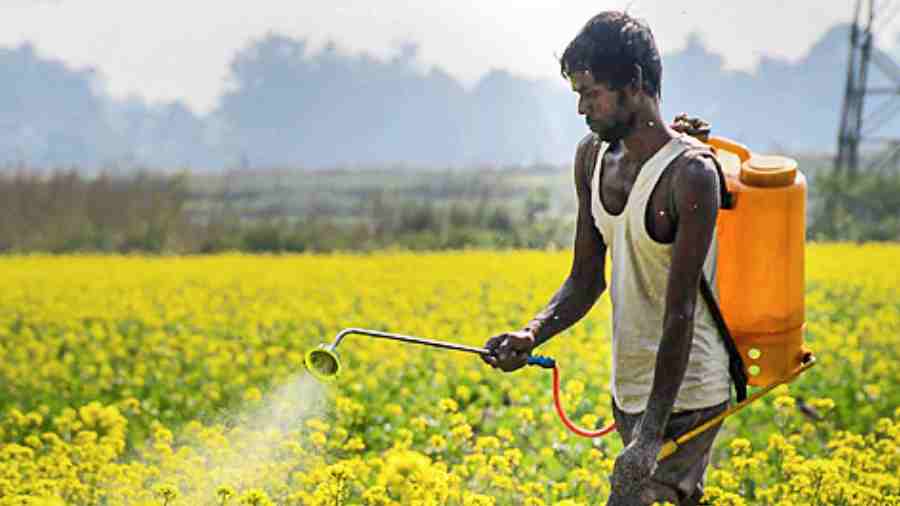India has opposed global targets to reduce subsidies and pesticides in agriculture for the sake of biodiversity, asserting that farming provides livelihood to millions in developing countries and that countries should be allowed to determine their national goals.
The Union environment minister Bhupender Yadav, delivering India’s national statement at the UN Convention on Biological Diversity on Friday in Montreal, underscored the importance of subsidies and pesticides in agriculture in developing countries.
The statement also iterated India’s expectations of more funds from rich countries to help the country protect its biodiversity.
“Our agriculture… is the source of life, livelihoods and culture for hundreds of millions. Such essential support to vulnerable sections cannot be called subsidies and targeted for elimination, while they may be rationalised,” Yadav told the convention.
“Similarly, a numerical global target for pesticide reduction is unnecessary and must be left to countries to decide,” he told the convention where the first draft of a global biodiversity framework is up for consideration.
The draft framework has proposed 21 targets and 10 milestones up to 2030, en route to “living in harmony with nature by 2050”. Among key targets are proposals for a global reduction in pesticides by at least two-thirds by 2030 and a $500-billion reduction per year of subsidies harmful to biodiversity.
China, Turkey and Mexico are other countries that have also opposed the pesticide cuts.
Yadav told the convention that the “increased expectations” represented by the targets listed by the draft global biodiversity framework “call for matching means of implementation, especially through public finance”.
“Our only source of funding (for biodiversity) remains the Global Environment Facility that caters to multiple conventions,” Yadav said, referring to the 30-year-old GEF, an international fund that supports projects on biodiversity, climate change, desertification and pollution.
At a meeting in Geneva earlier this year, India was part of a group of developing countries that had expressed a demand for $100 billion per year from the rich countries for biodiversity projects in developing countries.
This fund for biodiversity projects should be additional and distinct from funds disbursed for climate change, the group including Argentina, Bolivia, Brazil, Ecuador, Gabon, Guatemala, India, Pakistan and Venezuela had asserted at the meeting months ahead of the Montreal talks.










